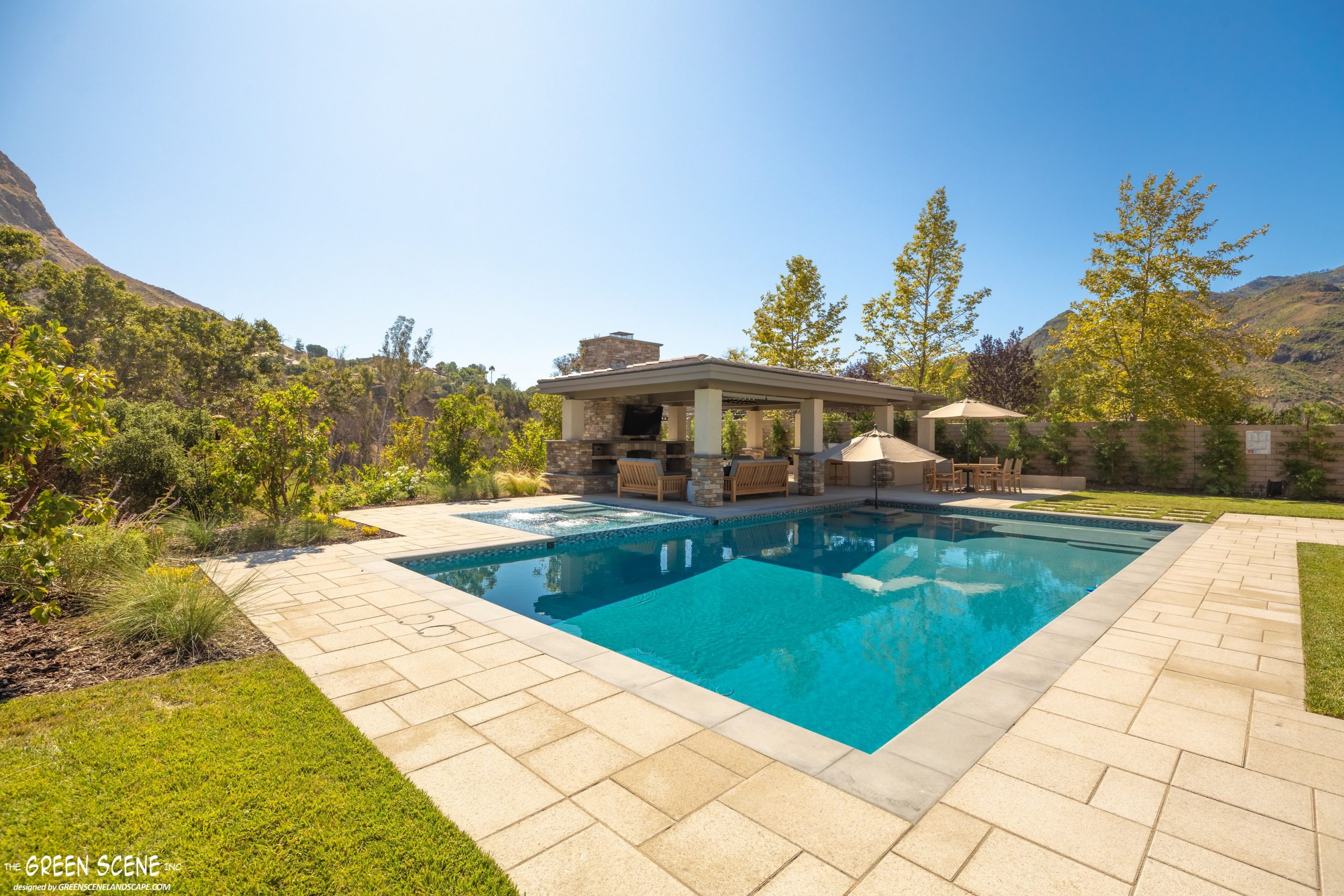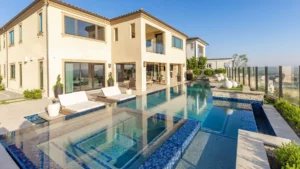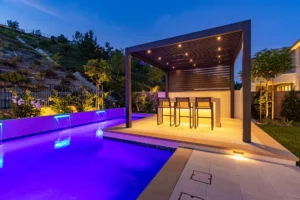With the drought in California becoming more serious as each summer day passes, swimming pools are coming under close scrutiny. Many California communities are moving to “Level 3” drought restrictions which include a 50% reduction in outdoor landscape water use and, unfortunately, has started conversations about limiting, or even eliminating all remodel and new pool construction permits.
As pool designers we can help promote wise water use through thoughtful design.
SWIMMING POOLS CAN USE LESS WATER WITH THOUGHTFUL DESIGNS:
Modern design of swimming pools in California need to take into consideration that we live in a desert. It is becoming unpopular for swimming pools to be vast oceans of water consumption available only to the rich and famous. Here are some tips for reducing water waste through good design practice and proper maintenance.
Membership in the CPSA is easy (click link here), inexpensive, and includes membership in the national parent organization, the Pool and Hot Tub Alliance (PHTA).
Sport Layout Pools
One of the biggest trends in our industry is the design and construction of “Sport Layout” pools. These are pools that are deeper in the middle at 5-6 feet and shallower on the ends at 3-4 feet, rather than the traditional 3 1/2 ft to 7-8 ft deep end. Although a shallower pool does not change the surface area or evaporation rate of a swimming pool, it does take less water for the initial fill — a major consideration in local communities considering stopping all pool permits. In fact, the California Pool and Spa Association points out that during the 4 months it typically takes to construct a swimming pool, the area is not being irrigated. The water that is saved during that construction time is enough to fill a new pool, net zero.

Motorized Pool Covers
The most obvious water saving solution is to design pools with motorized automatic covers. A covered pool reduces evaporation by over 95%, while saving on chemicals and providing an additional level of safety.
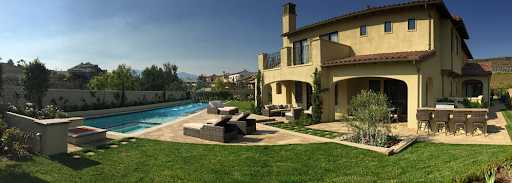
Use Bubble Covers
Providing bubble covers and encouraging clients to use them is becoming a requirement in most communities. Many pool builders in California provide a bubble type cover to their clients as part of complying with a permit requirement, but don’t bother to cut it to size or offer clients a convenient manual roller to make it easier to use. In Los Angeles where I perform most of my work, providing a bubble cover (or a mechanized cover) is a requirement for your permit, but this is not the case universally in California.
I recommend that ALL POOL CONTRACTORS IN CALIFORNIA provide a pool cover and then cut it to size for the clients to make it more convenient to use. If homeowners begin using these covers more frequently we will save water, and in turn, the pool construction industry (yes, it is getting that serious).

Use Cartridge Filters
Switch to using cartridge filters instead of DE filters. DE filters require frequent backwashing, and flushing of hundreds of gallons of water to clean as much as 4 times per year. Cartridge filters don’t require backwashing but rather a thorough rinsing only. The enlarged surface area of a cartridge filter means it needs to be cleaned less often compared with a DE filter, saving even more water.
Turn Off Your Autofill
Automatic fill units add convenience for sure, but they also obscure any leaking that may be taking place in the plumbing or pool shell. If the autofill is running regularly it is hard for a home-owner to be in touch with how much water they are actually using and whether a leak is present. The pool could have a slow leak and the autofill hides it by automatically filling up the water to compensate. We recommend turning off the auto-fill unit during the drought to force pool owners to be aware of how much water is being added regularly to the pool.
Use a Timer when Filling with a Garden Hose
We have all had a neighbor that leaves a hose in the pool and then forgets about it, overflowing the patios and decks as precious water flows down the street into the gutters. Set a timer on your phone, Alexa, or Google home unit to remind you to shut off the hose.
Reduce the Run Time on Water Features and Waterfalls
Aeration increases evaporation. Today’s phone app controlled water features allow multiple on/off times per day. Schedule water features to run only when you are around to enjoy them. Reducing run times can greatly reduce water use by curbing the speed of evaporation.

Less Splashy Waterfalls
Use baffles in waterfall spillway design to control water splash and water migration outside your water features.

Design Wind Breaks
Do this by using walls, screening, and plant hedges to reduce wind blowing over the water areas. Reducing wind over the water helps decrease evaporation.
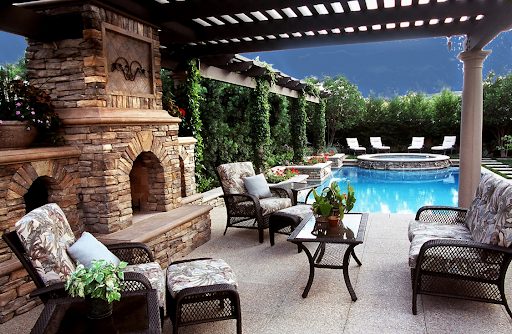
ALL IMAGES COURTESY OF www.GREENSCENELANDSCAPE.com and designed by Scott Cohen
The California Pool and Spa Association needs your help to fight misinformation about the drought! At the CPSA we need more members and litigation support in order to combat the growing wave (no pun intended) of desertion against swimming pools and water features in general during this drought. The only way to fight this proliferation of misinformation and threats to pool builders livelihood is to show our strength in numbers and to financially back the lobbyist team lead by Norwood and Associates.
Membership in the CPSA is easy (click link here), inexpensive, and includes membership in the national parent organization, the Pool and Hot Tub Alliance (PHTA).
Author –Scott Cohen Garden Artisan. Scott Cohen is an acclaimed garden designer, expert witness, author, and licensed contractor in landscape, pool, and general construction whose award-winning work has been showcased frequently on HGTV and in numerous books and national magazines. A charismatic and entertaining speaker, Cohen is also the author of 8 design and construction books, including the award-winning Outdoor Kitchen Design Workbook, Poolscapes, The Candid Contractor, and Outdoor Fireplaces and Fire Pits. Cohen serves as Chairman of the California Pool and Spa Association and is a champion for the swimming pool industry.


